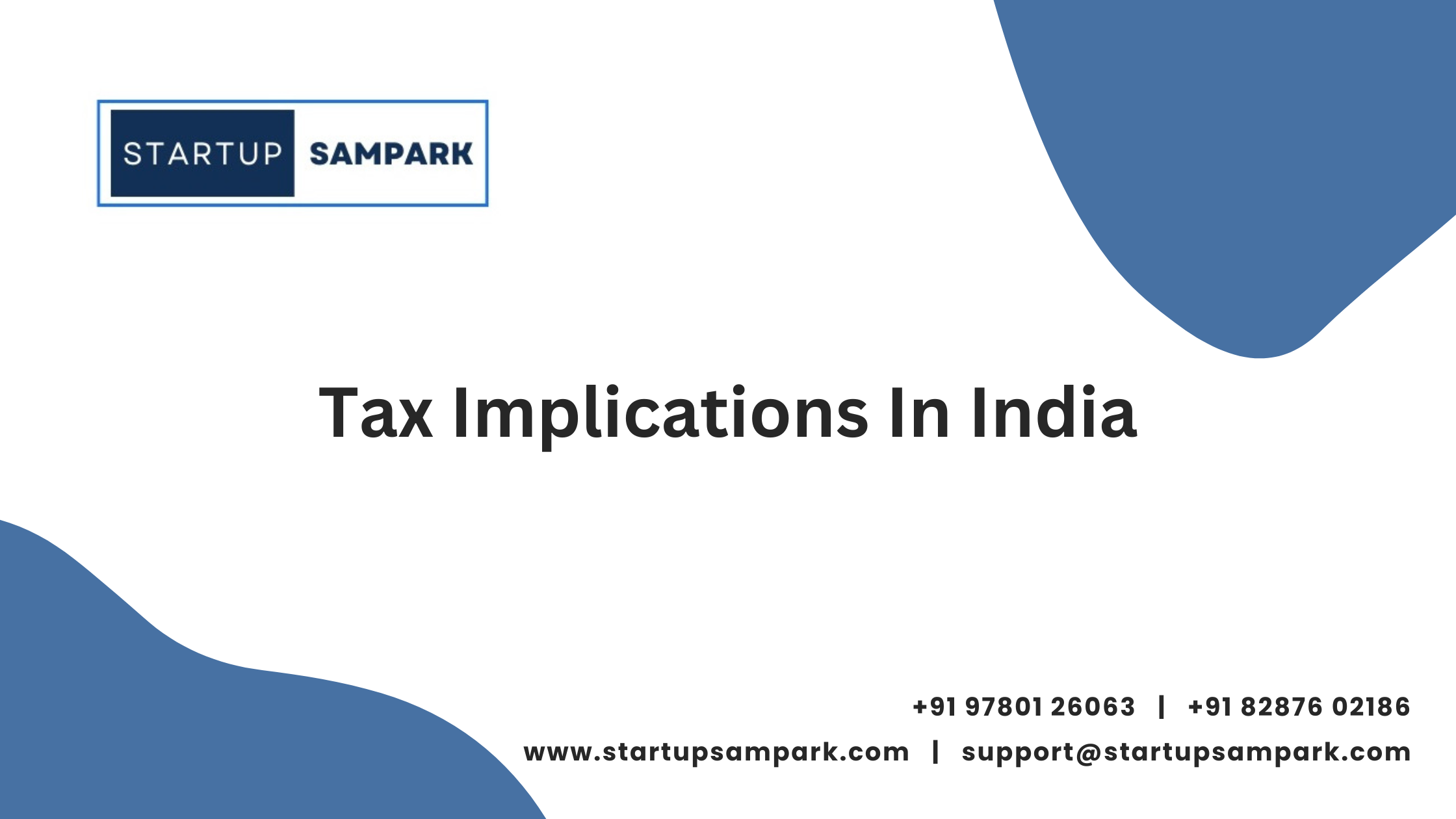Tax Implications in india
In India, choosing the right business structure significantly influences the tax obligations of your business. Here’s a detailed look at the tax implications for each common business structure:
1. Sole Proprietorship
- Income Tax: The income generated by a sole proprietorship is treated as personal income and is taxed according to the individual’s income tax slab rates. The profits and losses are reported on the individual’s personal income tax return.
- GST: If the turnover exceeds ₹40 lakhs (₹20 lakhs for special category states), the proprietor must register for Goods and Services Tax (GST) and file GST returns.
2. Partnership
- Income Tax: Partnerships are taxed as a separate entity at a flat rate of 30% on their income. A surcharge and cess are also applicable based on income thresholds.
- Distribution of Profits: Profits distributed to partners are exempt from further tax in the hands of the partners. However, the partnership firm must file its own income tax return.
-
 Startup Registration (DPIIT Recognition)₹8,850.00
Startup Registration (DPIIT Recognition)₹8,850.00
3. Limited Liability Partnership (LLP)
- Income Tax: LLPs are taxed at a rate of 30% on their income, plus applicable surcharge and cess. The LLP is considered a separate legal entity and must file its own tax return.
- GST: If the turnover exceeds the threshold limits, LLPs must register for GST and comply with GST return requirements.
4. Private Limited Company
- Income Tax: Private limited companies are taxed at a rate of 25% on their income if their turnover is up to ₹400 crores. For companies with turnover exceeding ₹400 crores, the rate is 30%. Additionally, a surcharge and cess apply based on income levels.
- Dividend Distribution Tax: As of April 2020, dividend distribution tax (DDT) was abolished, and dividends are now taxed in the hands of shareholders as per their income tax slab rates.
- GST: Private limited companies with turnover above the GST threshold must register for GST and file GST returns.
5. Public Limited Company
- Income Tax: Public limited companies are taxed similarly to private limited companies at a rate of 25% for companies with a turnover up to ₹400 crores and 30% for those exceeding ₹400 crores. Surcharge and cess apply as per income levels.
- Dividend Distribution Tax: Public companies must adhere to the same rules as private companies regarding the taxation of dividends, which are taxed in the hands of shareholders.
- GST: Public limited companies must also register for GST and file returns if their turnover crosses the prescribed limit.
Conclusion
Each business structure in India has distinct tax implications, affecting how your business income is taxed, as well as the compliance requirements for GST. When choosing a business structure, consider these tax impacts alongside other factors such as liability and management control. Consulting with a tax advisor or financial expert can help ensure that you select the most advantageous structure for your business.
startup , company incorporation, india
-
 Startup Registration (DPIIT Recognition)₹8,850.00
Startup Registration (DPIIT Recognition)₹8,850.00















Post Comment